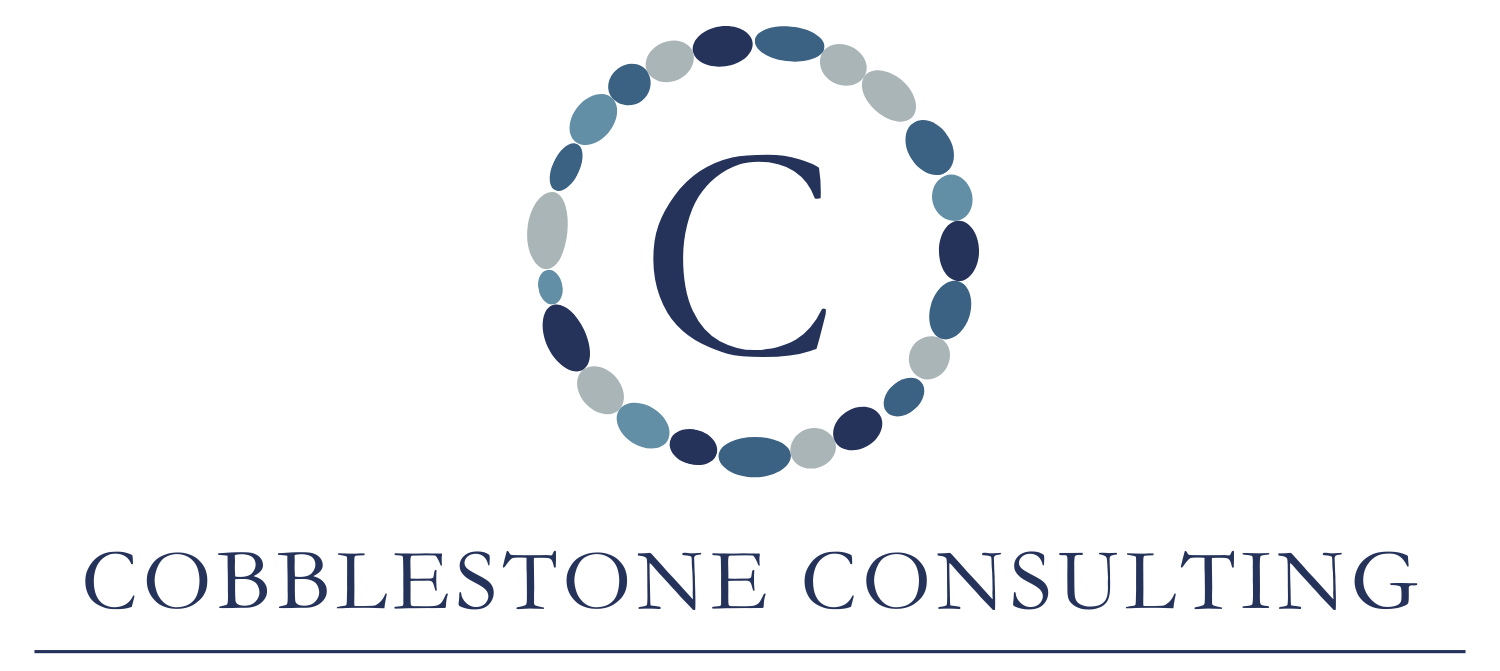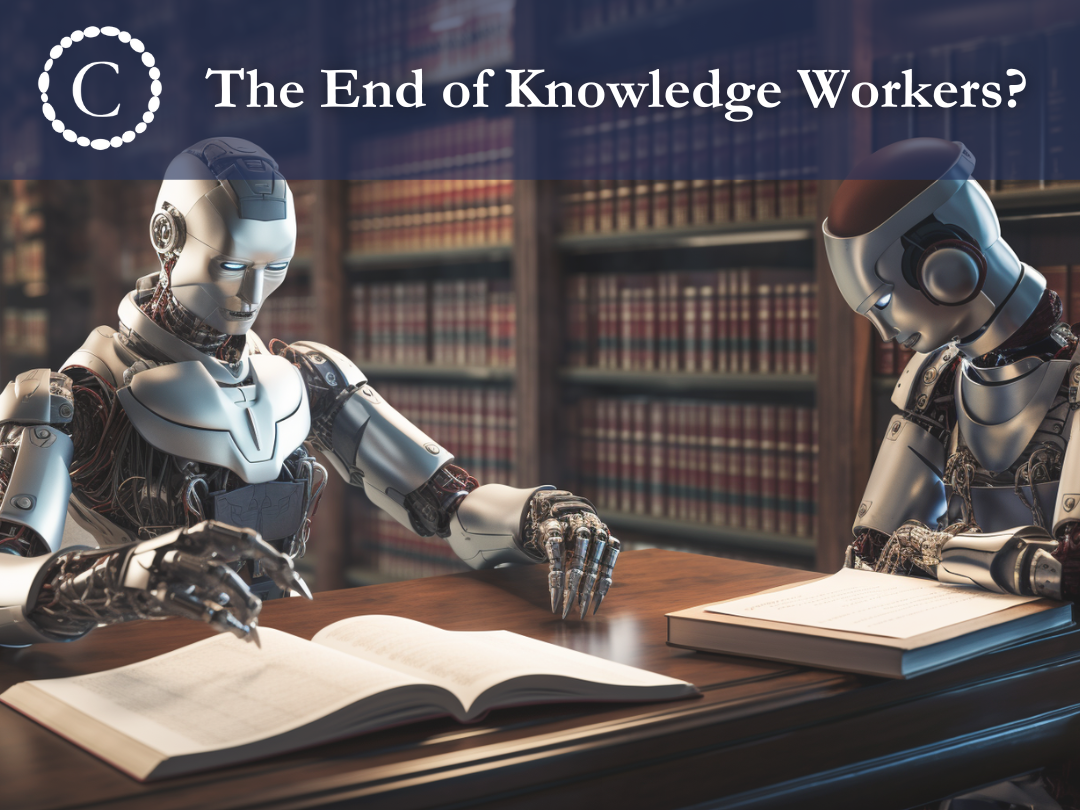Will artificial intelligence and, more specifically, the development of Large Language Models (LLMs) replace knowledge workers? Are lawyers, accountants, medical professionals, architects, writers, underwriters, and brokers at risk of being replaced? Will software replace entry-level positions? Will there be a viable role for the “average” knowledge worker? What is the future of work?
The opportunity and ability to earn a “living wage” working at a well-paying job is one of the cornerstones of a good life. A “living wage” is not just a question of technology. A “living wage” is also a question of vision, wealth, and political power. In various agricultural, industrial, and technological revolutions, the vision of a few people drove change. The resulting wealth and political power accrued to these same people. While over the long-term, the average person benefited, in the short term, they were often displaced or, worse, exploited. The prosperity in any agricultural, industrial, or technological revolution is thus not shared uniformly, and the politically powerless are less likely to enjoy any immediate benefit.
The current technological revolution will not be any different. Artificial intelligence and LLMs will impact everyone, whether blue-collar or white-collar workers alike.
A Capitalist’s Dream, a Worker’s Nightmare?
Today’s technological revolution, especially the deployment of artificial intelligence, contributes to technical, wealth, and income inequality. A free market is critical to technological advancement, and society should not place undue constraints on new technologies for fear of stymying them. It is equally vital in a constitutional republic that free markets are not entirely unconstrained. Decisions regarding artificial intelligence and its deployment should not be left exclusively to technologists who control the social media platforms that reach into every home and business and mold public opinion. Nor should they be left solely to companies who stand the most to gain immediately. The lessons of Cambridge Analytics are worth remembering. Elected officials need to minimize the negative social, civil rights, and quality of life consequences of deploying these technologies. Workers need to stand up for themselves without wearing the Luddite mantel. For example, government should play a role in easing the suffering of those who may lose their jobs (either now or in a few years). The 2023 Writers Guild of America strike and the Authors Guild class action lawsuits against Open AI are important if only to underscore legitimate concerns with the deployment of LLMs.
In a capitalist economy, successful businesses seek to optimize their operations to satisfy consumer demand and overcome competition while minimizing the use of expensive resources, avoiding excessive regulation, and driving down costs to maximize profit for their shareholders. These imperatives often lead managers to focus on a short-term horizon. After all, innovation looks to the future and can be expensive, and the return on investment is uncertain. However, for most businesses, embracing artificial intelligence is almost a sure thing. It will most certainly optimize their existing business by reducing their personnel costs (fewer employees) and enhancing efficiency and productivity. The government’s challenge is to ease the transition but not to impose such heavy regulation that it stifles innovation and the long-term societal benefits that historically have followed from the widespread adoption of revolutionary technologies.
With the widespread adoption of artificial intelligence and particularly LLMs, what will be the impact on workers and their quality of life? What will be the future of work?
The Future of Work
Artificial intelligence is already re-engineering the future of work. Artificial intelligence and advances in robotics have transformed the career prospects of blue-collar workers and will continue to do so at an accelerated rate. Artificial intelligence and LLM are just starting to change the career prospects of knowledge workers and professionals. This transformational process is in its infancy, but it is easy to imagine artificial intelligence doing the routine grunt work that knowledge workers currently do. This past September, the Economist published an editorial, and the Harvard Business School published a study that provides insight into using artificial intelligence in knowledge work.
Ten years ago, Carl Benedikt Frey and Michael Osborne released the study, The Future of Employment, suggesting that the idea of the “average worker” was ending- with up to 47% of jobs in the United States being at risk from technology deployment.(https://www.oxfordmartin.ox.ac.uk/downloads/academic/future-of-employment.pdf)
This September, in the Economist, these two scholars published an editorial sharing some observations on their earlier work. The editorial reads in part, “What does this mean for the future of work? First, although many jobs can be automated, the most recent wave of generative AI will continue to need a human in the loop. Second, low-skilled workers are poised to benefit disproportionately, as they are now able to produce content that meets the “average” standard.” They observe that highly trained workers will benefit less from generative artificial intelligence programs.
Complementing Professor Frey’s and Osborne’s observations, the Harvard Business Review also published this September, Navigating the Jagged Technological Frontier: Field Experimental Evidence of the Effects of AI on Knowledge Work Productivity and Quality. The Harvard Business School, The Wharton School, the Artificial Intelligence Network, MIT Sloan School of Management, and the Boston Consulting Group (BCG) studied the impact of LLMs and came to a similar conclusion. The study’s authors examined the performance implications of AI on realistic, complex, and knowledge-intensive tasks. The pre-registered experiment involved 758 BCG consultants, comprising about 7% of the individual contributor-level consultants at the company. Quoting from the report: “We suggest that the capabilities of AI create a “jagged technological frontier” where some tasks are easily done by AI, while others, though seemingly similar in difficulty level, are outside the current capability of AI. For each one of a set of 18 realistic consulting tasks within the frontier of AI capabilities, consultants using AI were significantly more productive (they completed 12.2% more tasks on average, and completed tasks 25.1% more quickly), and produced significantly higher quality results (more than 40% higher quality compared to a control group). Consultants across the skills distribution benefited significantly from having AI augmentation, with those below the average performance threshold increasing by 43% and those above increasing by 17% compared to their own scores. For a task selected to be outside the frontier, however, consultants using AI were 19 percentage points less likely to produce correct solutions compared to those without AI.” One possible outcome from the AI revolution is that each profession will employ fewer people, and those remaining people will take advantage of sophisticated artificial intelligence programs that will enable them to focus on genuinely challenging problems or opportunities. (https://www.hbs.edu/ris/Publication%20Files/24-013_8f3583c2-2e9a-4379-9697-a93bd6a84133.pdf)
The Economist’s editorial and the Harvard Business School’s working paper suggest that, despite early predictions of widespread AI deployment replacing knowledge workers, there is time to find a collaborative balance between the growing competency of LLMs and the need for knowledge workers to retain employment and earn a living wage.
Professor Richard Susskind OBE is the President of the Society for Computers and Law and is the most cited author on the future of legal services. Professor Susskind has been writing about technology and the professions (law) since 1987. In his, The Future of the Professions, he offers a compelling vision of the future of professional services in a tech-driven era. He highlights fields like law, medicine, accountancy, and architecture as particularly susceptible to disruption by artificial intelligence. It is also reasonable to suggest that businesses like (re)insurance and broking are likewise subject to this disruption. Unless government regulation intervenes to protect the short-term interests of those who benefit from stringent licensing and other rules to keep the way professional expertise is made available to society, professions will be more open. Sophisticated artificial intelligence programs will diminish the gatekeepers’ role. As Professor Susskind sees it, these professions are transitioning from being traditional gatekeepers of knowledge to embracing more automated and systematized approaches, thanks to technological advancements like artificial intelligence.
Professor Susskind’s work and the work of Professors Frey and Osborne, as well as the Harvard Business School’s working paper, have clear and increasingly imminent implications for all knowledge workers, not just those traditionally classified as professionals. All knowledge workers will be impacted by artificial intelligence and LLMs, whether through replacement, automation, or collaboration.
Professionals and knowledge workers following the example of the Writers Guild of America need to pay attention to the development of LLMs and their deployment in the workplace. Ideally, these tools should complement the work of professionals and knowledge workers, not replace them. Professionals and knowledge workers need to be politically active on the local, state, and federal levels to encourage the passage of legislation and regulation that promotes the benefits of artificial intelligence and protects the rights of all workers.

